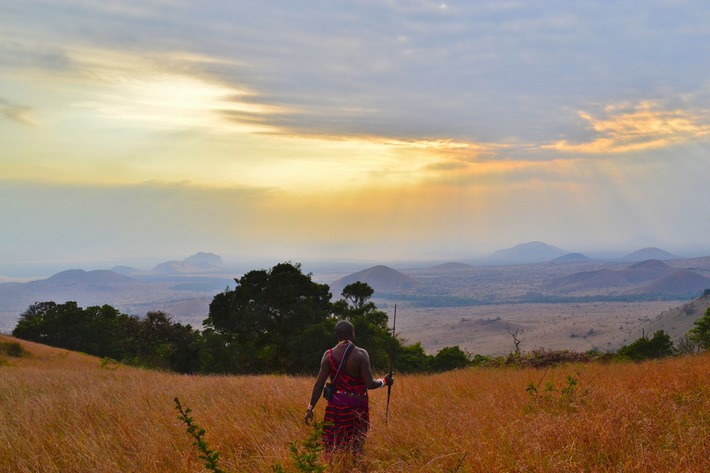sable blog post« Back to Blogs Listings
October 23, 2017

A Guide to the Poorest Countries in Africa
Jackie Edwards
Having spent several years abroad carrying out aid work I have visited some of the most impoverished and unstable places around the globe. My work has exposed me to sights of unbearable suffering, the lives of people embroiled in the very depths of despair whether this be down to poverty, illness or famine. Despite the plight of the people I found in several countries in Africa, I believe that there is light at the end of tunnel in this post-colonial era. However, for conditions to improve it is important that we all appreciate how difficult day to day life is in some of these countries. There are several advocacy groups who work hard to draw our attention to the contributing or consequential factors associated with poverty but their efforts are often undermined by a lack of available resources and the time and resource commitment necessary to build and maintain relationships with the populations and representative of these countries. We must not think that their work is ‘enough’, we must open our eyes to the everyday struggles of people experiencing extreme poverty ourselves
Poverty in a Rich Country - Africa's Poorest Countries
As the second-largest continent in the world, Africa has huge cultural and economic diversity, with some nations enjoying prosperity and others struggling to provide a sustainable economy and lifestyle for their people, despite the fact that many poor countries have vast reserves of minerals and other resources.
In contrast to countries like South Africa, with communities active in trying to promote economic growth such as the Sable Network, the poorest nations in Africa are still suffering from the effects of colonialism and the ensuing political instability. The ten poorest countries by GDP in 2016 were as follows.
Mali - GDP per capita $1136
Freed from French colonial rule in 1960 the population of this landlocked state, heavily dependent on agriculture, suffers from low life expectancy largely attributed to malnutrition and contagious diseases. Life expectancy at 53 years of age is an improvement on previous years but significant improvements would be required in the areas of sanitation and disease prevention for this trend to continue.
Madagascar - GDP per capita $972.07
This island nation's economy is heavily dependent on tourism but in common with other countries in Africa, tourism has slowed recently. Another former French colony, Madagascar has suffered from political instability and despite several ecotourist ventures aiming to boost sustainable tourism, unrest has continued to the detriment of the tourist industry.
Malawi - GDP per capita $893.84
The people of this former British protectorate were, according to their President in a speech in 2014, better off under colonialism. Suffering under the strain of the prevalence of HIV/AIDs amongst the population, many lives rely on subsistence agriculture alone.
Niger - GDP per capita $853.43
Another former French colony, Niger has struggled not only with political instability but to find ways for its economy to grow when 80% of the country's land is covered by the Sahara, with further land being threatened by desertification and degraded soils caused by poor farming practices.
Central African Republic - GDP per capita $827.93
Despite its possession of huge reserves of gold, uranium and diamonds, the Central African Republic remains steadfastly in poverty. Forced labour is common and a large proportion of the population remains illiterate. Like most of the other poorest countries, political unrest and violence is common, not only hampering economic growth but attempts of aid organisations to improve quality of life in the country.
Eritrea - GDP per capita $792.13
A one-party state, increasingly criticised for alleged human rights abuses, Eritrea has also suffered from drought and conflict. Situated in the Horn of Africa, the country has made improvements to healthcare, made education compulsory between the ages of 7 and 13 and has banned female genital mutilation but rumours abound regarding the treatment of the population by the agents of the government, fuelled by the lack of an independent press.
Liberia -GDP per capita $716.04
Unusual on this list as a county that was not colonised but rather founded by the American Colonisation Society for freed slaves in 1821; the country has however suffered many of the same difficulties of the other poor nations of Africa. The Civil War which ended in 2003 has left a legacy of pain despite the peace deal, with much of the country's infrastructure needing to be rebuilt. Liberia was left further devastated by the outbreak of Ebola in 2014.
Burundi - GDP per capita $648.58
Gaining its independence from Belgium in 1962, Burundi has shared the wider experience of political instability within poor African countries, extending even to ethnic genocide. Although the situation is calmer now, the return of refugees has sparked conflict over land ownership. HIV/AIDs remains prevalent and the situation of the 80% of the population in poverty is exacerbated by the failure of wages to keep pace with interest rates.
Zimbabwe - GDP per capita $589.46
Zimbabwe has long been affiliated with corruption and human rights abuses. The land reform programme which redistributed farms from white owners has not paid off economically, with huge losses in the export market and a massive drop in food production. The currency crisis leading to hyperinflation completely disrupted the economy, which is still recovering having adopted the U.S. dollar. In 2016 the Finance Minister of Zimbabwe described the government as having “...literally nothing.”
Democratic Republic of Congo - GDP per capita $394.25
The political unrest which is a feature of most poor African countries escalated to a Civil War in the Democratic Republic of Congo in 1997 and conflict continues in some areas. The war was characterised by the use of child soldiers and high levels of sexual violence, and the different sides took every opportunity to plunder the country’s natural resources, leaving the prospects for the DRC bleak.
Post-colonial Africa is still recovering from the ravages of not only the colonial period but the instability that followed. The power vacuum left by the empire nations when they retreated resulted in civil wars and the ensuing destruction of economic and health services, paving the way for food shortages, the spread of disease and corruption. With the age of imperialism behind us now and more willingness to aid developing nations the future could be promising for these poor nations as long as world organisations take on the responsibility to allow these nations to flourish.
Now working as a writer, Jackie started her career in foreign aid work, traveling through Africa and witnessing what life is like for people who are less fortunate, but after becoming a mom refocused and decided to spend more time with her family. When she's not writing, she volunteers for a number of local mental health charities and also has a menagerie of pets to look after. To read the original article, please visit http://www.africaranking.com/top-10-poorest-countries-in-africa/

